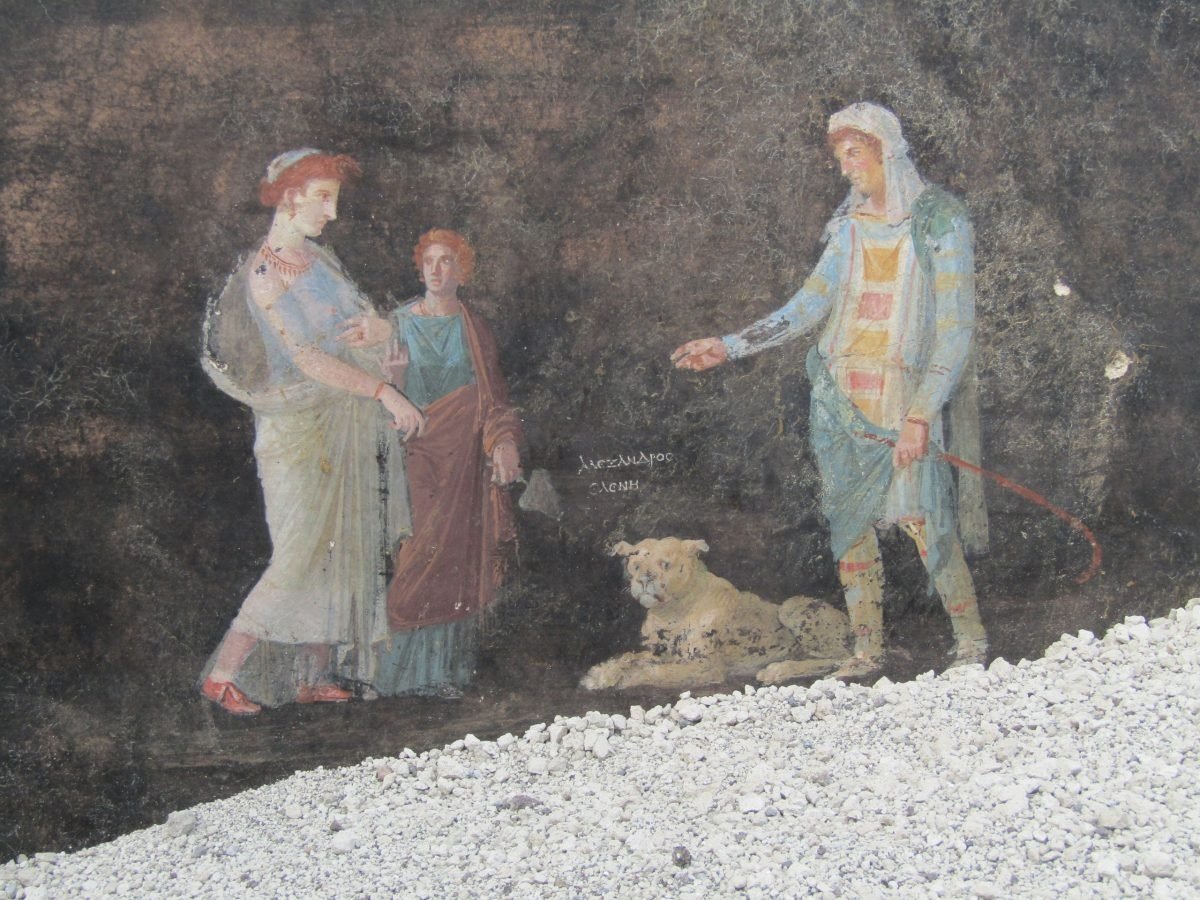A collection of frescos recently discovered at the Roman city of Pompeii have been described as among the finest found by archaeologists.
Pompeii was a Roman city, located in the modern commune of Pompeii near Naples, Italy.
Pompeii, along with the Roman town of Herculaneum, were buried under 4 to 6 metres of volcanic ash and pumice during the eruption of Mount Vesuvius in AD 79.
The frescos are located on the walls of a large banqueting hall, part of a high status domus adjacent to the Vicolo orientale and the Vicolo occidentale in Regio IX.
The hall measures approximately 15 metre in length by 6 metres wide, and connects to an open courtyard which appears to be an open-air service hallway, with a long staircase leading to the first floor.
The frescos depict Greek mythical figures and members of the Greek pantheon of gods.
In one scene, Apollo is seen attempting to seduce Cassandra, a Trojan priestess fated by him to utter prophecies but never to be believed. Another scene shows Paris as his kidnaps Helen of Troy, thus triggering the Trojan War from Homer’s Iliad.
To protect the frescoes from the elements and collapse, the archaeologists are injecting the plaster with a special glue, while the masonry is presently being shored up with temporary roofing and scaffolding.
According to Gabriel Zuchtriegel, Director of the Archaeological Park of Pompeii, the walls of the banqueting hall were painted black to obscure the “lamp black”, the black carbon residue left behind from burning oils.
The wall images probably served as icebreakers, particularly under the flickering glow of the lamps, where the figures seemed to come alive, especially as guests indulged in several glasses of Campania wine.
Header Image Credit : POMPEII
Sources : POMPEII





